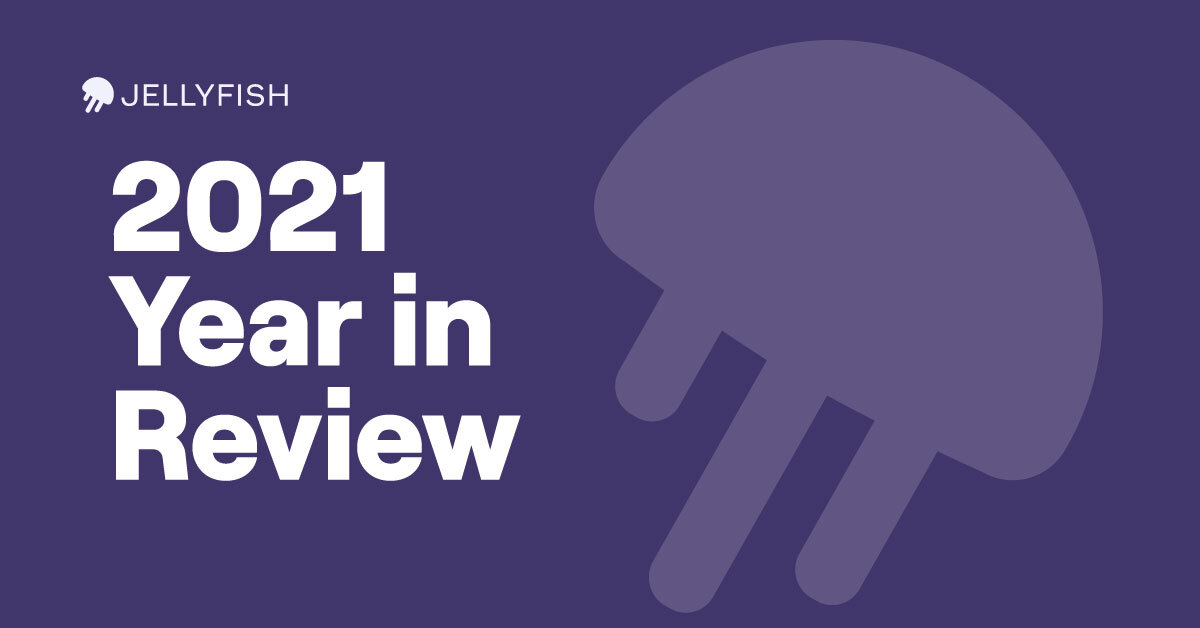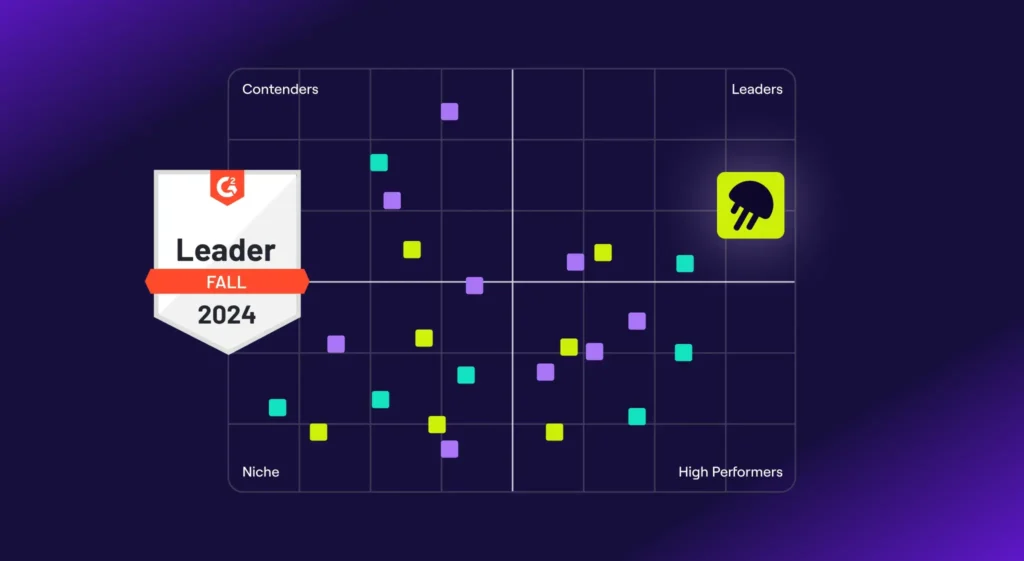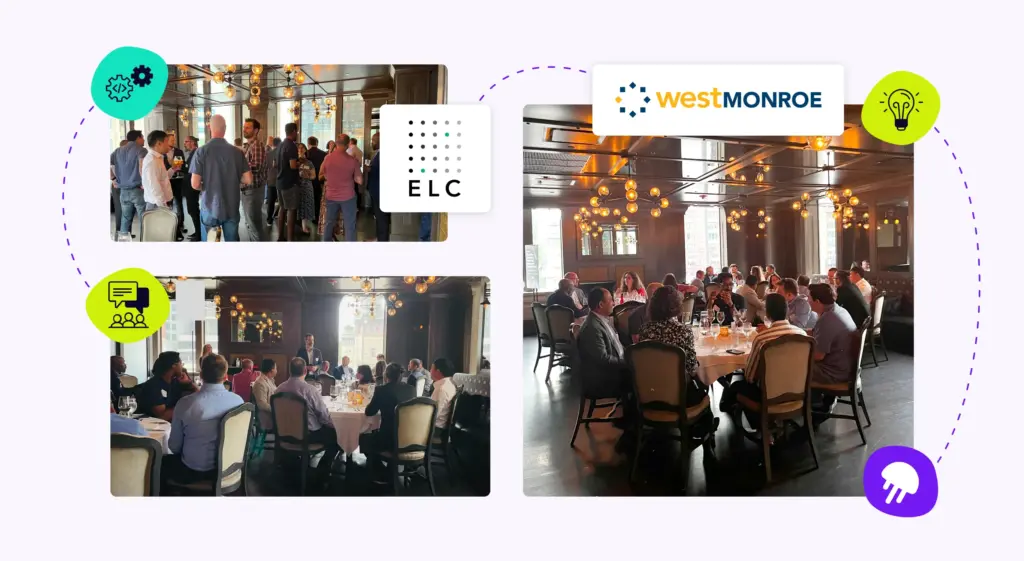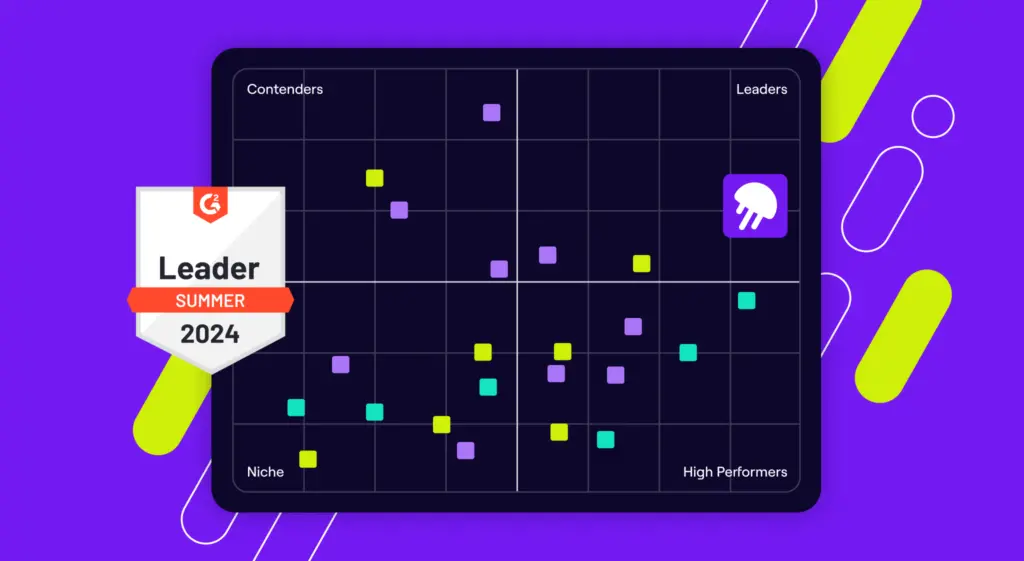As we enter the holiday season, we wanted to take some time to reflect on the year gone by; it’s the perfect chance to pause for a moment and recognize all that we have to be grateful for.
I speak for all of us here at Jellyfish when I say that we are incredibly grateful for our amazing software teams. We imagine that many engineering leaders reading this post feel the same way. Since the beginning of the pandemic, teams have faced numerous unprecedented challenges and hardships – both personal and professional in nature. In the face of this adversity, what’s truly amazing is that they’ve still managed to move our companies forward. For that, we’re truly grateful.
The extended Jellyfish team had a gut feeling that our customers’ software teams knocked it out of the park this year. It can be challenging, though, to quantify all of your accomplishments.
That’s why we’d like to share a select few of the great many things that you should be proud of. We hope you find them insightful, but more importantly, we hope that they spark discussion amongst your own teams about all that you’ve accomplished.
In 2021, Your Software Teams Were More Productive
Our data indicates that 2021 was much more productive than last year for software engineering teams using Jellyfish. We found that these teams:
- Resolved 44% more issues YoY
- Merged 43% more pull requests, and
- Made 29% more commits YoY
Our customers’ teams saw incredible productivity increases across the board in 2021. This might be partially explained by a common intention across our customer base to break large issues into smaller, more manageable chunks. Even with this accounted for, this data set shows strong indications that teams are simply outputting more. Of course, we need to watch these numbers closely in the future, as we wouldn’t want these productivity gains to come at the cost of increased team burnout – but with the prioritization of team health at the forefront of engineering leaders’ minds, we’re confident that the right balance is going to be struck moving into FY22.
In 2021, Your Software Teams Spent More Time on Growth/Innovation Initiatives
Engineering Management Platforms (EMPs) allow us to better understand how software teams allocate their work during any given period of time. Many leaders want to be working on “the next big innovative feature”, but the reality is that it takes intentional focused effort to shift your work allocation to a higher (and stable) roadmap/innovative feature amount. We all need to find the right balance of work for our teams based on our strategic business objectives.
The good news is that many leaders wanted to be spending more time on innovation and growth, and our customers’ teams made huge progress on this front. Software teams using Jellyfish spent 20% more time on company roadmap projects over the past year than the year prior. While further research will clarify fully why this is the case, we believe this could be in part because of the intentional effort to increase work allocation in this area after adopting an EMP.
In 2021, Your Software Teams Were More Operationally Efficient and Improved Their Data Hygiene
Software teams are continuously seeking to improve the way we deliver value (through software) to our customers. Deploying software more frequently, reducing cycle time, and being able to respond to incidents quickly are just a few of the core goals that we strive towards. Engineering operations is becoming more important than ever, as development processes can break down as companies hire more and scale for the future.
And in more good news: the Jellyfish community can all be thankful for our progress towards our engineering operational goals on a couple of fronts:
- In 2021, these software teams collectively grew their total headcount by 23%.
- In the midst of this growth, teams reduced their pull request cycle times by 33% in 2021.
- Additionally, during this period of increased operational efficiency and growth, teams reduced the number of unlinked PRs in Jira by 30%.
While growing your teams by over 20%, teams improved their engineering operations, and made improvements in how they organize and structure their Jira instances.
Thank you
The data shows that engineering leaders in the Jellyfish community have much to be grateful for, and we’re looking forward to sharing more of these in-depth insights and analyses in the 2022 State of Engineering Management Report.
As a final note, there are plenty of other reasons why we’re proud of our teams that aren’t quantifiable. They’re personal, and specific to the individuals who we call our colleagues. The reasons why we’re grateful are as unique as the people involved and the cultures that they’ve built. The bonds we’ve formed with our co-workers, the way they’ve responded to challenges, how they’ve fostered a culture that brings people together, etc. We could never quantify some of these things, nor would we ever want to. But we do want to thank all of you for continuing to lead the fight for software teams, the unofficial innovation engines, of businesses the world over.







